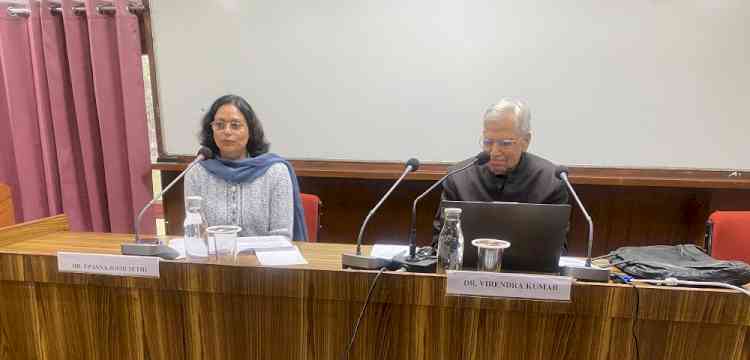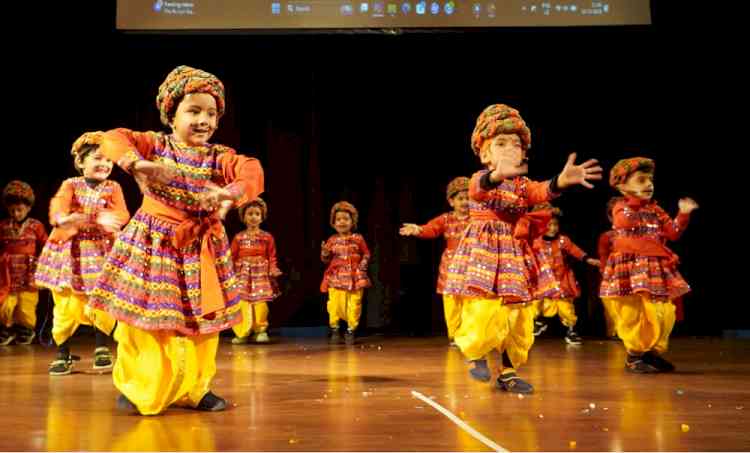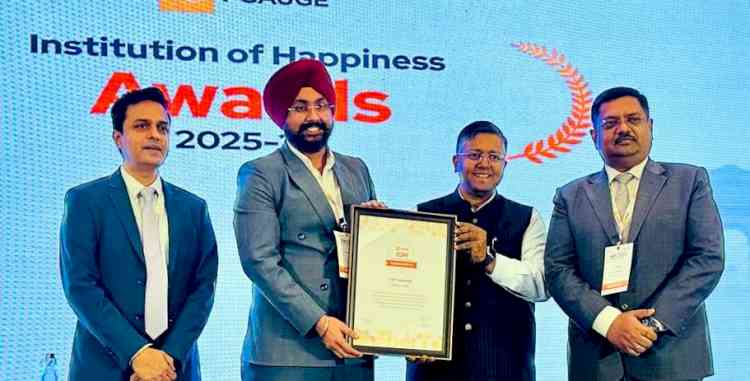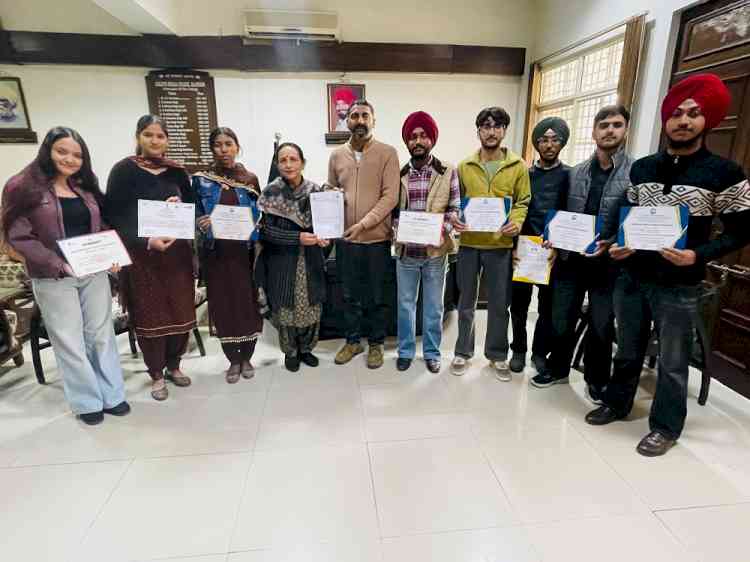Lecture at ICSSR Complex
The ICSSR North-Western Regional Centre, Panjab University, Chandigarh, organised a lecture titled “Reservations within Reservation: A New Evolving Constitutional Strategy for Consolidating an Equitable and Inclusive Society – A Critique of the 7-Judge Constitution Bench Judgment of the Supreme Court Delivered on August 1, 2024” at the ICSSR Complex.

Chandigarh, December 22, 2024: The ICSSR North-Western Regional Centre, Panjab University, Chandigarh, organised a lecture titled “Reservations within Reservation: A New Evolving Constitutional Strategy for Consolidating an Equitable and Inclusive Society – A Critique of the 7-Judge Constitution Bench Judgment of the Supreme Court Delivered on August 1, 2024” at the ICSSR Complex.
A number of legal luminaries, faculty members, research scholars, and students participated in the lecture.
In his address, Professor Emeritus in Law and UGC Emeritus Fellow Prof. Virendra Kumar reflected on the significant impact of the 7-Judge Bench judgment of the Supreme Court. He described the immediate reactions to the judgment, including sharp dissent among Scheduled Castes, which culminated in a Bharat Bandh on August 21, 2024. Two Union Ministers also vehemently opposed the judgment, which introduced the concept of applying the “creamy layer” principle to SC and ST reservations.
Prof. Kumar elaborated on the constitutional and social fallout of this judgment. He raised a critical question: What was the primary source of misunderstanding about the judgment among the public and even the government? In his view, social media played a pivotal role in spreading misinterpretations due to superficial readings of the detailed judgment, which requires a high level of contemplation to fully comprehend.
He emphasised that “reservations within reservation” is a relatively new concept that does not aim to expand quotas but to consolidate them within the Scheduled Castes.
Prof. Kumar argued that such measures align with Dr. B.R. Ambedkar’s vision of fostering “social democracy” as a way of life rooted in liberty, equality, and fraternity. He likened this approach to the dynamics of a joint family or a relay race, where reserved seats are shared or passed in a team spirit to benefit the most marginalized.
Prof. Kumar concluded that the 7-Judge Bench judgment’s allowance for sub-classification within Scheduled Castes is intended to strengthen the Constitution’s goal of creating an equitable, inclusive society.
Earlier in her opening remarks, Honorary Director of the ICSSR North-Western Regional Centre, Prof. Upasna Joshi Sethi highlighted that the principle of “reservation” has been an integral element of India’s constitutional framework since 1950, aimed at uplifting disadvantaged sections of society. She noted that the introduction of “reservations within reservation” represents an innovative constitutional strategy to refine and consolidate an equitable society. However, she acknowledged the debates surrounding its potential benefits, challenges, and implications for social cohesion. She emphasised that reservations must filter out economically deprived individuals to ensure justice and social equity.
The program concluded with a vote of thanks to the chair and the participants.


 City Air News
City Air News 











